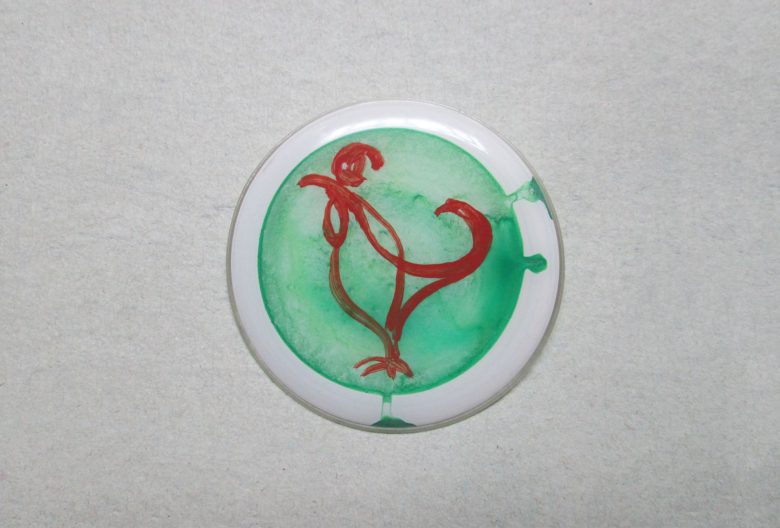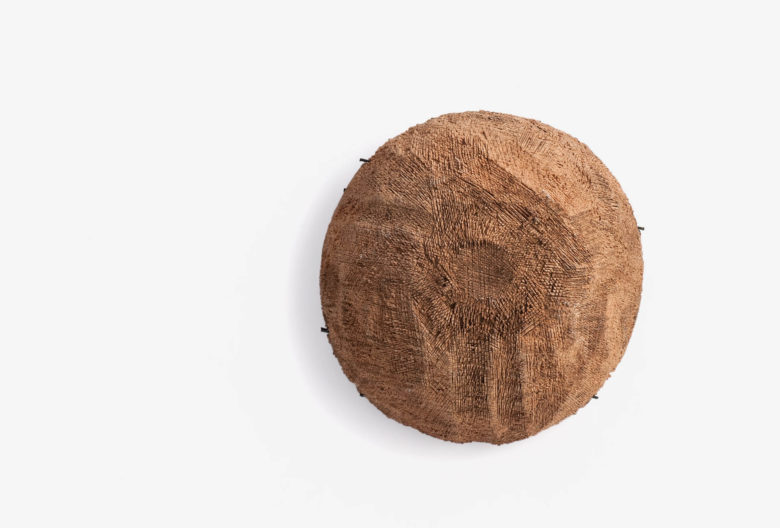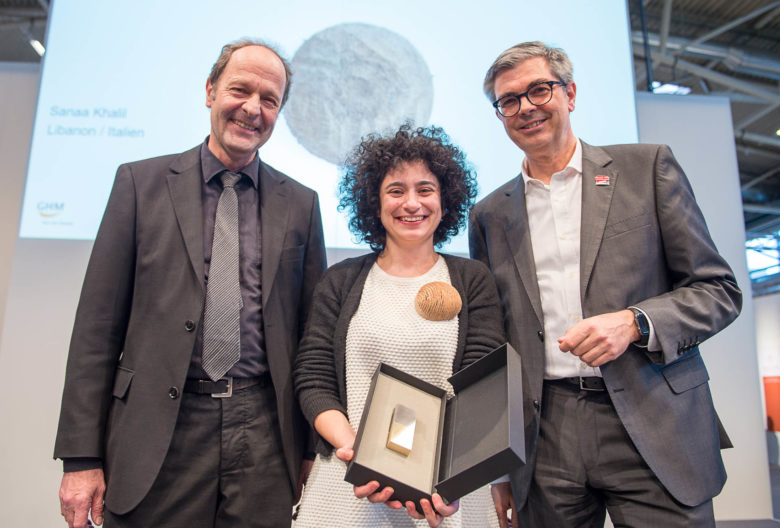These awards, which number among the most prestigious international commendations for contemporary jewelry, are annually conferred to winners chosen from among the exhibitors participating in the special jewelry show [Sonderschau Schmuck] at the International Crafts Fair in Munich. The jury with Otto Künzli, Gert Bruckner, Monica Gaspar, Marjan Unger and Cornelie Holzach, this year’s curator, have chosen quiet but nontheless boring pieces.

Prizewinning pendant by Florian Weichsberger. Photo Florian Weichsberger
Prizewinner Florian Weichsberger created the “Warrior#1.1” pendant, a simply shaped object that nevertheless triggers countless associations. The steel tube, inside of which a second pale tube is concealed, could equally well be a tool or a weapon.
No Idealized Folkloric Paradise
With its traditional bird motif atop a kind of crown glass, Volker Atrops’ prizewinning “Hahn” [Rooster] brooch initially calls to mind an example of rural folk art. But this first impression is contradicted because the piece is made not from glass or ceramic, but from plastic. The apparent folkloric Eden is subverted by the doubling and overlapping of the motifs, which are restricted to a red-and-green color scheme.

With this brooch won Volker Atrops the Herbert Hofmann Prize of the special jewelry show in 2017. Photo Volker Atrops

Brooch by the Herbert Hofmann prizewinner Sanaa Khalil. Photo Sanaa Khalil

Conferral of the Herbert Hofmann Prizes. Wolfgang Lösche (director of the special jewelry show, Chamber of Commerce of Munich and Upper Bavaria), prizewinner Sanaa Khalil, and Dieter Dohr (chairman of the board of GHM)
Sanaa Khalil wooden brooch is similarly multifaceted. Its domed shape represents religious fortitude, as well as political and economic power. Khalil carves, cuts, hammers and etches the wood, thus imbuing the piece with her own energy and with the feelings of vulnerability and anxiety that result from her frustration over the situation in her Lebanese homeland. Julie Metzdorf